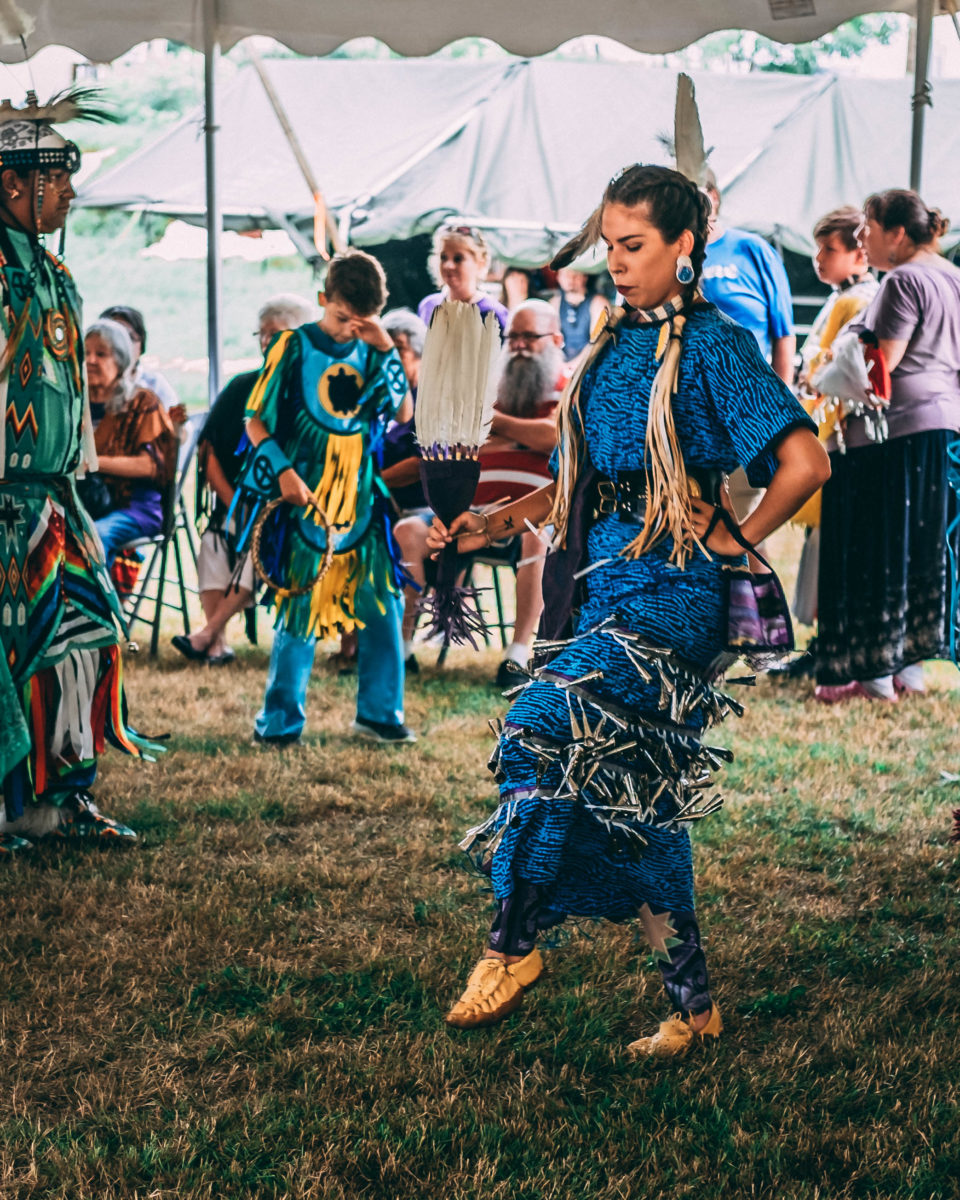Amanda Reid Rogers has been named the University of New Brunswick’s Piluwitahasuwin, a position that serves as the assistant vice-president of Indigenous engagement. As a part of UNB’s Truth and Reconciliation strategic action plan, Rogers will be a key figure in implementing other parts of the plan at the university which is situated on unceded Wolastoqey land.
Rogers, a Dakota-Sioux of Birdtail First Nation in Manitoba, grew up among the Wolastoqewiyik in Woodstock First Nation. She is a jingle dancer and a recognizable face at any of the pow-wows around Waponahkik (Land of the First Light, or the Maritime region).
“I have really close family and community bonds here in Wolastoquk,” she said.

Piluwitahasuwin is a Wolastoqey word for “one who promotes change in a good way towards truth,” which has its roots in Piluwitahasuwawuwakon meaning “allowing your thinking to change so that action will follow in a good way toward truth.”
“The position is really embedded in the name Piluwitahasuwin. I think that’s why I like that title so much. It speaks to changing minds and living the truth,” Rogers said.
A large part of Rogers new position will be to take a leadership role in planning and implementing UNB’s Truth and Reconciliation Commission strategic action plan. It’s a plan that UNB established with the Mi’kmaq-Wolastoqey Centre as well as other advisors on how they’re going to put forward reconciliation in a post-secondary context.
“One of the first things moving forward is to bring together an Indigenous advisory board. It’s important to identify that UNB’s TRC strategic action plan is not something one person alone can implement,” she said. “It definitely requires a collaborative approach with Indigenous community members, elders, knowledge holders, as well as allies.”
She also mentioned that she thinks it’s important for universities to have a cohesive anti-racism policy.
Rogers said over the last four years of her master’s program at UNB in nursing, she has found herself bringing her Indigenous perspective into academic spaces, so educating people is something she’s done before.
“Ever since starting my master’s, I’ve been involved in educating across disciplines like medicine, nursing and education. I’ve had these really hard conversations about Canada’s colonial history, and reconciliation as well as racism,” Rogers said.
“When you see students and faculty start to internalize and understand what you’re saying and see that transformative education in action, that’s something that I realized that I wanted to do for the rest of my life.”
Rogers, who did her bachelor of science in nursing at Dalhousie University in Halifax, said she had a difficult time finding a sense of community there.
“I felt like I went through my undergrad program just studying really hard,” she said. “I had to move back to New Brunswick because this is where my community and culture is.”
She credited much of her success in her graduate studies at UNB to the Mi’kmaq-Wolastoqey Centre and her mentor Lisa Perley-Dutcher, a Wolastoqew woman, who was a faculty member in the UNB nursing department at the time she started.
Rogers draws inspiration from her younger siblings to make change in positive way in academia for future generations of Indigenous students to feel comfortable as themselves when they come to university.
“It was also important to me that I had a solid base of family as well as community support and I think that part of that motivated me to apply for this position.”
As part of her application for the position, Rogers had to give two public presentations after the interviewing process. Her family was in attendance. She said her little brother was sitting directly across from her and it was a moving experience for her.
“In my PowerPoint on the last slide, I had a photo of my little brother holding a fish,” she said. “I chose that photo for the last slide because I’m essentially talking to his generation and I loved that this photo encapsulates him exercising his treaty rights. His right to fish as a Wolastoqew.”
Rogers is thankful for her mentors and other influential figures who have allowed for her walk along this new path.
“We’ve had a long line of Indigenous leaders in university settings. Whether they are teachers, scholars or researchers, they’ve laid the stepping stones for the current generation to come up through,” she said.
After announcement was made by UNB that Rogers is the new Piluwitahasuwin, she said the outpouring of support has been incredible.
“I’ve had a flood of comments and several people reaching out to me saying they’d like to support me in this role,” she said. “It’s great because I know that I need help with the action plan moving forward. It’s nice that people are already putting themselves forward or volunteering to help me along the way.”
Rogers had a message to any students who may be reading.
“Reconciliation means recognizing that our Indigenous nations are healthy, bright and thriving and it is import in supporting us to achieve self determination. Knowing that the United Nations Declaration on the Rights of Indigenous Peoples, Royal Commision Aboriginal People and the Truth and Reconciliation Commission’s 94 Calls to Action are our roadmaps for Indigenous and non-Indigenous people to move forward in spirit of truth and reconciliation,” she said.
“The other message that I would impart is that I’ve heard from survivors that truth comes before reconciliation. Sometimes we want to skip some of that history in order to get to our end goal, to celebrating culture and language but we also have to work through the hard stuff first.”
And to any Indigenous women reading, she had another message.
“It will be a win, when we all win,” she said. “What I mean by that, it’s great that we have one person in this leadership position and I think that the university is seriously undertaking its commitment to engage in reconciliation but it has to be for the benefit for our sisters and brothers.”

